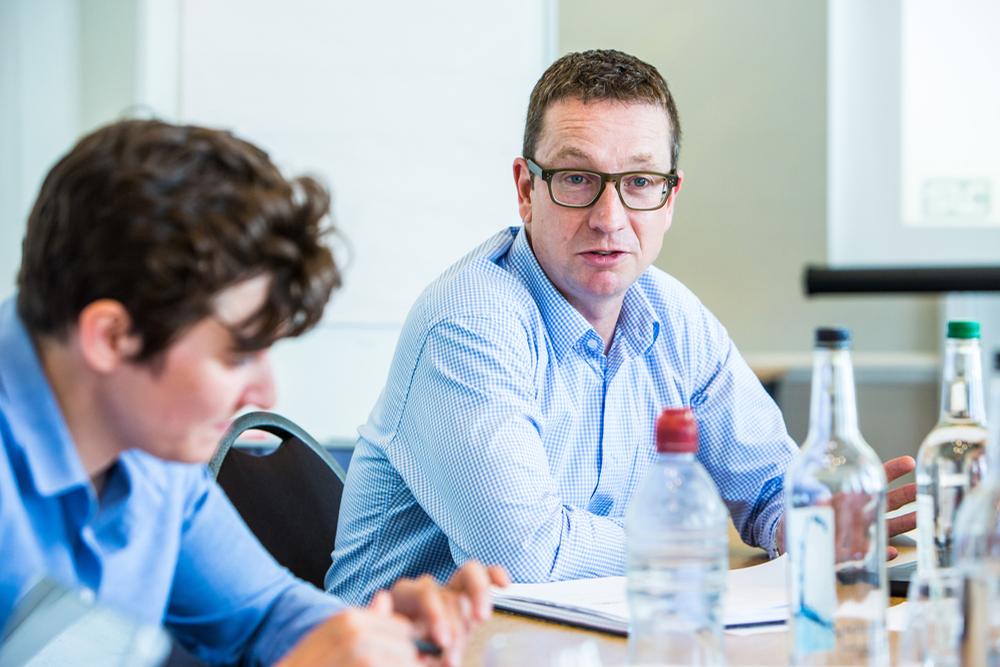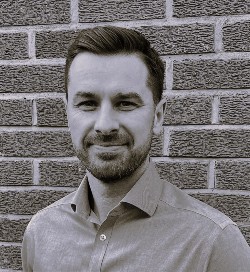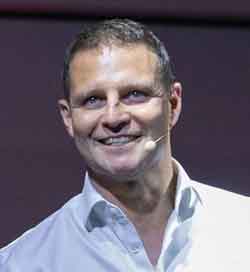For anyone who works in, or supports public sector leisure, my heart goes out to those who are grappling with the pressures of responding to lockdown and for those who have been furloughed and are waiting for signs of recovery.
I’m going to focus on public sector leisure provision and share thoughts on how our sector’s future, post COVID-19 could play out. I’m talking council gyms, health and wellbeing hubs, leisure centres, swimming pools, parks, sports development and health outreach.
National organisations such as Sport England, ukactive, the Local Government Association, Chief Cultural and Leisure Officers’ Association and Community Leisure UK have been working tirelessly together with government to respond to the crisis. Consultancies and law firms have been supporting councils in developing positive ways forward with their respective leisure operators and trust partners.
Does any one individual or organisation have all the solutions? Of course not. Many questions are yet to emerge as we deal with the uncertainty and all we can be sure of is that recovery will require one vital ingredient – leadership.
We all know post COVID-19, life for this sector is going to be challenging, but a post-COVID-19 world presents a once-in-a-generation challenge and opportunity for us all. I believe we have the power to shape the sector’s future, to create a fresh chapter for public leisure provision – one that has vision, purpose, hope and meaning.
We must fight for recovery. Accept we’re not the only experts. Be humble enough to ask others for their opinion and their advice. Start thinking big, being more comfortable with personal and professional risk. Share with competitors because we want to learn from them.
Seeking out new ideas and being prepared to let go of old ones that are no longer relevant in a post COVID-19 world. Connecting with new people with different skills and knowledge in public health, health, mental health, youth work, adult social care and education; many of whom think differently from us and will challenge our thinking.
We have the power to collectively shape the sector’s future, to create a fresh chapter for public leisure provision – one that has vision, purpose, hope and meaning.
The alternative doesn’t bear thinking about.
The blueprint
• Sector colleagues use lockdown to network, read and share their thinking. They broaden their knowledge and search for new opportunities and connections in public health, social care and education.
• Leisure, health and social care leaders come together as one to explore joined up service interventions, informed by skilful stakeholder management and messaging.
• A clear vision emerges for the public leisure sector, designed to support the nation and founded on a new strategy. The aim is to create a recovery and regeneration service linked to health and wellbeing and the rebuilding of communities and the economy.
• Sector bodies have put their tribalism aside and support the vision. They focus on articulating and planning what they can do collectively for a post-COVID-19 society, not what the government can do for them. The vision is so good it’s investable – even in a recession.
• Both central and local government leaders are inspired by the vision and strategy. They grasp it and see it as a key feature of the new ‘normal’. They embrace it, adapt it and run with it, inspired by the evidence, passion, enthusiasm, shared purpose and consistent messaging of a sector speaking as one.
• New collaborations and partnerships begin to form. There’s a spirit of learning and discovery.
• National insight-led campaigns are launched to communicate the vision and inspire the mobilisation of both the active and inactive with an even greater commitment to address inequalities.
• Proportionate universalism and whole systems thinking become key foundations for sector learning and service design. Martyn Allison is the leisure sector ‘interpreter’ for these concepts – I encourage you to be curious and find out about them in his LinkedIn articles. They changed my perspective on what this sector should be about. This enables us to ensure we address inequalities as part of core business, not as an afterthought.
• Using this insight, leisure operators, trusts and their member organisations collaborate with experts in health and other sectors, involving the brightest and most innovative team members to explore new offers. This work is supported by national research to provide insight into future predicted behaviour change and the needs of a post-COVID-19 society.
• A ‘new normal’ starts to be defined from emerging evidence and shared experience. Council commissioners and their leisure operators collectively learn and share what people are thinking and what their needs will be in the future.
• All public sector leisure operators provide transparent open book access to their partners for the foreseeable future. Relationships are strengthened as they work tirelessly to agree a sustainable way forward together for the next 6-18 months.
• Through a clear post COVID-19 strategy, some councils may not reopen some of those poorly-performing and ageing facilities, but instead use the crisis to reimagine a compelling, affordable locally co-produced alternative.
• Sustainable core leisure facilities and services start to flourish again, as councils take the opportunity to refocus on needs that can be met through a range of viable interventions and partnerships with their leisure operator partners.
• These decisions are mindful of ensuring the strategic alignment of these partnerships, the economic sustainability of services and the establishment of effective performance management. This enables more local data to be used to shape the local offer and provide greater insight nationally to inform the sector as it moves towards a new steady state.
• New markets are reached and engaged with for the first time. Programmes are – at times – experimental, with no fear of failure, but a commitment to learning.
• Promotions and offers are crafted to support the vision. They are evidence-based and designed to support longer-term sustainability.
• Leisure operators and trusts use the active environment as an extension of their core offer – building on the nation’s new love of walking, running, cycling, being outdoors. Parklife is back, accessible and affordable. They forge deeper partnerships with schools and local businesses, responding to the nation’s need to move more.
• Operational leisure staff start to see a bright future through the new vision and purpose. This is reinforced by the clarity of thinking shown by their leaders, who feel they’re in the best possible position to thrive in future. They throw themselves into the recovery stage, with a real belief they’re part of the new healthier society and sustainable sector that is adapting to support it.
• Training and CPD opportunities begin to reflect the new vision and start developing capacity and capability in evidence-led health interventions, cross sector collaboration and partnership working.
• The commitment to the preventive health agenda is redoubled. Public health becomes more established in local government and public leisure services evolve with them. Greater partnerships are fostered with the voluntary and sports sectors. Social prescription becomes an essential element of the sector’s offer. GPs become a key partner and see the role we can play to support them in keeping their community active and healthy.
• The academic evidence to support physical activity interventions builds momentum and influence linked to a more pragmatic and outcome driven approach.
• Those public sector leisure operators and trusts with strong relationships and partnerships survive the crisis with the support of their partners and take the opportunity to reconnect with their communities through insight-led programming, and an improved digital offer. Through a transparent and partnership-based approach, they begin to regroup, recover and regenerate.
• Management fees and funding agreements are necessarily subject to regular review and fair adjustments until steady state returns. Investment in leisure, health hubs and active community facilities will deliver the right financial and social returns on investment in future, delivering greater benefits to communities and value for money.
• The leisure service evolves into a health and wellbeing service and becomes even more valued by political leaders at national and local levels through this recovery stage. The sector becomes a source of hope, recovery and regeneration. It begins to evolve as integral part of an emerging whole system supporting the nation’s wellbeing.
Duncan Wood-Allum is MD of SLC, The Sport, Leisure and Culture Consultancy. Contact: [email protected]



























































